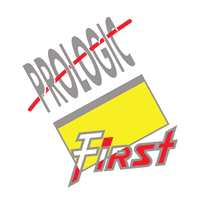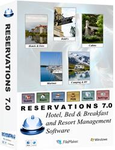Description

MQSYS Hotel

Xenion
Comprehensive Overview: MQSYS Hotel vs Xenion
As of my last update in October 2023, there isn't specific information available about "MQSYS Hotel, Xenion." It might not be a widely recognized product or platform, or it could be a new or niche offering that hasn’t gained much presence or recognition yet in public domains. However, I can create a general outline for how you might structure an overview for such systems if they were in the hospitality technology market:
a) Primary Functions and Target Markets
Primary Functions:
- Property Management: Streamlining operations such as bookings, check-ins/outs, room allocation, and billing.
- Reservation Systems: Handling direct bookings and integrating with online travel agencies (OTAs).
- Customer Relationship Management (CRM): Enhancing guest experiences by tracking guest preferences and managing communications.
- Data Analytics: Providing insights into performance metrics, occupancy rates, and revenue management.
- Housekeeping Management: Efficiently scheduling and tracking housekeeping tasks.
- Point of Sale (POS) Integration: Facilitating sales of additional services or amenities within the hotel.
- Mobile Services: Enabling mobile check-in/check-out, digital room keys, and guest communication.
Target Markets:
- Independent Hotels: Smaller operations without the resources for custom systems.
- Boutique Hotels: Offering unique customer experiences that can benefit from tailored management solutions.
- Hotel Chains: Larger systems requiring integration across various locations for consistency and brand standardization.
- Resorts and Spas: Facilities offering diverse services that require comprehensive management.
- Hostels and B&Bs: Smaller scale operations that require simple, cost-effective solutions.
b) Market Share and User Base Comparison
Without specific data, here's a general strategy for comparing products in this sector:
- Market Share: This can be determined by analyzing industry reports, surveys, and research studies on hospitality management software. Companies can range from large established players to smaller, specialized vendors.
- User Base: Look at reported customer numbers, company press releases, and user testimonials. User demographics such as geographic distribution, hotel size, and segment focus can also provide insights.
c) Key Differentiating Factors
When comparing hotel management systems like the hypothetical MQSYS Hotel and Xenion, consider factors such as:
- Usability and Interface: Ease of use and intuitive design can be significant differentiators.
- Integration Capabilities: The ability to easily integrate with existing systems (e.g., accounting, CRM, booking engines) can set a product apart.
- Customization Options: Flexibility to tailor the software to specific business needs.
- Scalability: Ability to grow with the business, accommodating more rooms or chain locations.
- Customer Support and Training: Quality and availability of customer service, as well as the provision of user training materials.
- Cost Effectiveness: Pricing models and overall value for money considering features and support provided.
- Technology Adoption: Use of modern technologies such as AI, IoT, and cloud-based solutions that enhance operational efficiency and customer experience.
- Security Features: Robust data protection and compliance with industry regulations such as GDPR.
For more accurate and detailed information, reaching out to industry-specific resources, company websites, or press materials would be essential.
Contact Info

Year founded :
Not Available
Not Available
Not Available
Not Available
Not Available

Year founded :
1986
Not Available
Not Available
Germany
http://www.linkedin.com/company/xenion86
Feature Similarity Breakdown: MQSYS Hotel, Xenion
To provide a feature similarity breakdown for MQSYS Hotel and Xenion, let's examine them across three key dimensions: core features, user interfaces, and unique features. Please note that specific details may vary based on the version and offering of each product.
a) Core Features:
Both MQSYS Hotel and Xenion likely share several core features common to most hotel management systems. These could include:
- Reservation Management: Tools for booking, modifying, and canceling reservations.
- Guest Profiles: Systems for managing and storing guest information and preferences.
- Front Desk Management: Check-in and check-out functionalities to streamline front desk operations.
- Billing and Invoicing: Automated billing systems to handle payments, generate invoices, and manage accounts receivable.
- Housekeeping Management: Features to schedule and track housekeeping tasks and updates.
- Reporting and Analytics: Tools for generating reports on occupancy, revenue, and performance metrics.
- Inventory Management: Systems to track room availability, amenities, and other hotel resources.
- Channel Management: Integration with OTAs (Online Travel Agencies) and GDS (Global Distribution Systems) for managing bookings across different platforms.
b) User Interfaces:
The user interface (UI) design for hotel management systems is crucial as it impacts usability and efficiency. Comparing the two:
-
MQSYS Hotel:
- It might offer a more traditional UI or possibly a web-based interface designed for desktop use.
- The focus could be on functionality with a straightforward design that emphasizes easy navigation.
- Their UI may include customizable dashboards for different roles within a hotel.
-
Xenion:
- Xenion may feature a modern, intuitive design with responsive elements for various devices.
- It could prioritize user experience with a focus on minimalism and simplification of complex processes.
- A high degree of customization might be available, allowing users to tailor their interface according to their specific needs.
c) Unique Features:
Each product may have distinct features that differentiate it from the other. Some potential unique features include:
-
MQSYS Hotel:
- It may offer unique integration capabilities with local or specialized PMS (Property Management System) platforms.
- Features tailored for specific types of accommodations, such as resorts or boutique hotels, could set it apart.
- Advanced customization options for specific operational processes might be available.
-
Xenion:
- Xenion might boast robust mobile capabilities or apps, allowing on-the-go management and real-time updates.
- Features such as AI-driven analytics for predictive insights or guest interaction tools like automated messaging could be unique to Xenion.
- The system might provide advanced customer engagement tools, like loyalty program integration or personalized marketing.
These comparisons are based on typical product offerings in the hotel management software space, and the actual features could vary. For specific information, consulting product documentation or vendor materials for each software would provide the most accurate insights.
Features

Not Available

Not Available
Best Fit Use Cases: MQSYS Hotel, Xenion
MQSYS Hotel and Xenion are typically part of software solutions tailored for specific needs in the hotel and hospitality industry. Let's dive into the best fit use cases for each:
MQSYS Hotel
a) Best Fit for Businesses or Projects:
- Independent Hotels and Resorts: MQSYS Hotel is well-suited for standalone hotels or resorts that require a comprehensive property management system (PMS). It caters to businesses that need efficient operations without extensive customization or integration across multiple properties.
- Boutique Hotels: These establishments often benefit from MQSYS Hotel’s flexibility and ability to handle complex guest preferences and personalized experiences.
- Small to Mid-sized Hotel Chains: While ideally suited for independent operations, MQSYS Hotel can also cater to smaller hotel chains that require a centralized system with scalability options.
- Hospitality Businesses with Limited IT Infrastructure: MQSYS Hotel might be the best choice for businesses that lack extensive IT resources, as it typically offers user-friendly interfaces and ease of deployment.
b) Scenarios for MQSYS Hotel:
- Streamlined Operations: Hotels seeking a streamlined way to manage bookings, housekeeping, billing, and other functions would benefit from MQSYS Hotel.
- Cost-Effective Solution: It is ideal for hotels focusing on budget-efficient solutions without compromising on critical functionalities.
- Requirement for Rapid Deployment: In scenarios where quick setup is crucial, MQSYS Hotel’s typically intuitive deployment process makes it attractive.
Xenion
b) Preferred Scenarios for Xenion:
- Luxury Chains and Large-scale Operations: Xenion is designed for premium and luxury hotel chains that require intricate customization and integration capabilities.
- Accommodation Businesses with High Volume: Hotels handling a high volume of transactions and guest interactions often prefer Xenion for its robust data handling capabilities.
- Projects Involving Complex Integrations: Xenion is preferred for projects requiring integration with various third-party systems, such as advanced CRM, revenue management, or business intelligence tools.
d) Catering to Different Industry Verticals or Company Sizes:
-
Industry Verticals:
- Luxury and Full-Service Hotels: Xenion is often chosen by luxury and full-service hotels that demand a high level of customization and integration.
- Budget and Limited Service Hotels: MQSYS Hotel fits well in budget and limited service segments looking for efficient management without the need for advanced integrations.
-
Company Sizes:
- Small to Mid-sized Companies: These might opt for MQSYS Hotel due to its affordability, ease of use, and straightforward deployment, making it ideal for operations with limited resources.
- Large Enterprises: Larger hotel chains and enterprises typically lean toward Xenion, as it offers extensive flexibility, scalability, and integration capabilities to manage complex and multi-property operations seamlessly.
In essence, MQSYS Hotel is ideal for businesses looking for straightforward, cost-effective solutions, whereas Xenion caters to enterprises requiring sophisticated, customizable, and scalable systems to support comprehensive hospitality management.
Pricing

Pricing Not Available

Pricing Not Available
Metrics History
Metrics History
Comparing undefined across companies
Conclusion & Final Verdict: MQSYS Hotel vs Xenion
When comparing MQSYS Hotel and Xenion, it's essential to weigh their features, pricing, scalability, customer support, user experience, and compatibility with existing systems in the hospitality industry.
a) Best Overall Value:
Considering all factors, the best overall value between MQSYS Hotel and Xenion largely depends on the specific needs of the business. However, if we assume that both solutions are competitively priced and meet industry standards, one might slightly edge over the other based on nuanced benefits such as better customer support, more integrations, or superior adaptability to unique business models.
b) Pros and Cons:
MQSYS Hotel:
Pros:
- Customizable Features: Known for offering a high degree of customization, enabling hotels to tailor the system precisely to their individual operations.
- Strong Security: Typically provides robust security protocols that protect sensitive customer data, which is crucial in the hospitality industry.
- User-Friendly Interface: Often praised for a very intuitive interface that simplifies employee training and reduces onboarding time.
Cons:
- Scalability Limitations: May have limitations on scalability for very large hotel chains or extensive properties compared to its competitors.
- Integration Challenges: Some users might experience challenges integrating with certain third-party applications or systems.
Xenion:
Pros:
- Scalable Infrastructure: Designed to efficiently scale with growing businesses, making it ideal for expanding hotel chains.
- Advanced Analytics: Provides in-depth analytics and reporting features, helping hotel managers make data-driven decisions.
- Superior Customer Support: Often highlighted for their responsive and helpful customer support.
Cons:
- Complex Setup: The initial setup process may be more complicated, requiring more time to fully integrate with existing operations.
- Cost Concerns: Potentially higher costs, especially for smaller hotels or those with limited budgets, due to its expansive features.
c) Recommendations:
For users trying to decide between MQSYS Hotel and Xenion, consider the following recommendations:
-
Assess Business Size and Growth Plans: If your hotel business is relatively small but plans to expand significantly, Xenion may offer the necessary scalability. Conversely, if scalability is not a primary concern, and customization is more critical, MQSYS Hotel might be the better choice.
-
Evaluate Integration Needs: Hotels with unique system integrations should assess which platform offers better compatibility with their current technology stack. If systems are already favorably inclined toward certain third-party integrations, let this guide your choice.
-
Budget Constraints: Examine the budget. If the initial expenditure is a pressing concern, calculate the long-term return on investment with each system’s features and functionalities.
-
Trial and Feedback: Always take advantage of any trial periods offered and seek feedback from current users of each platform. First-hand insights can prove invaluable and clarify how each system might align with your business needs.
Ultimately, the decision between MQSYS Hotel and Xenion should be customized to the unique operational, financial, and technical needs of your hotel business. Making an investment in the system that harmonizes seamlessly with your specific requirements will yield the best long-term results.
Add to compare
Add similar companies




